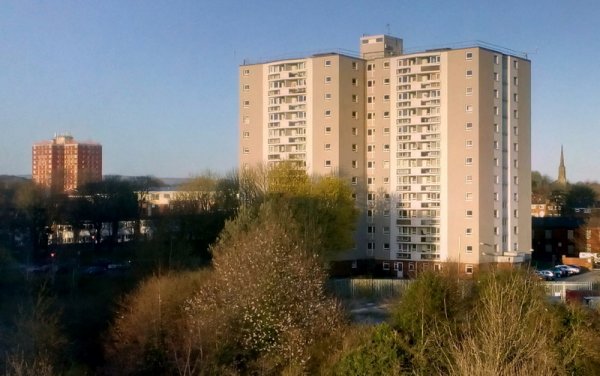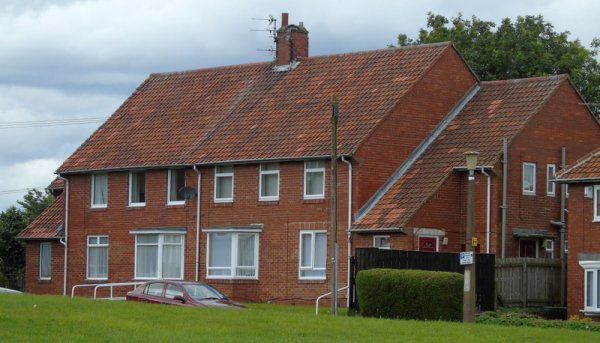Dec 10th 2024, 19:32
Blog 10th December 2024
In this blog I consider the government’s intention to reform the Right to Buy scheme in England.
The government announced its plans to reform Right to Buy on 20th November 2024, saying that the future of social housing would be protected through making the scheme fairer and more sustainable. The measures are included in a consultation paper and include:
Deputy Prime Minister and Secretary of State for Housing, Angela Rayner said that:
“For millions of people in the position I was once in, that first step into the secure social housing that changed my life has become a distant dream. Too many social homes have been sold off before they can be replaced, which has directly contributed to the worst housing crisis in living memory. We cannot fix the crisis without addressing this issue – it’s like trying to fill a bath when the plug’s not in.
“A fairer Right to Buy will help councils protect and increase their housing stock, while also keeping the pathway to home ownership there for those who otherwise might not have the opportunity to get on the housing ladder.”
 Council Flats in Wigan
Council Flats in Wigan
The government remains committed to Right to Buy, that they see as an integral way for social tenants to get on the property ladder, many of whom may not otherwise be able to access home ownership. But the reforms are intended to make the scheme more sustainable and better value for taxpayers considering the unprecedented pressures on housing supply. Fewer than 48,000 social homes have been built or acquired using Right to Buy receipts since 2012, despite over 124,000 council homes sold through the scheme across the same period.
The housing crisis has seen the demand for social housing currently at an all-time high, with over 1.2million people stuck on housing waiting lists and record numbers of households, including over 150,000 children, living in temporary accommodation.
The government reduced maximum Right to Buy discounts to £16,000 - £38,000 depending on the area as part of the autumn budget. As committed in their manifesto, the government reviewed the increased discounts introduced in 2012 and concluded that returning discounts to their pre-2012 regional levels would deliver a fairer and more sustainable scheme as well as offering better value to the taxpayer. Secondary legislation to reduce the maximum cash discounts came into force on 21st November 2024.
Councils can also retain all the receipts from sales, including the share that previously went to the Treasury that totalled around £183million every year. This means councils can better protect their housing stock as well as scale up delivery to meet future housing need.
The government is now seeking views on the next phase of reforming Right to Buy. Proposals in the consultation include:
Ahead of wider reforms, the government has already taken steps to give councils more confidence to ramp up the delivery of new social homes. This includes increasing the cost floor protection period from fifteen to thirty years under which discounts can be limited to avoid the price falling below what has been spent on building, repairing and maintaining properties. This came into effect on 21st November 2024.
 Council Houses in Gateshead
Council Houses in Gateshead
As announced in July, councils now have greater flexibility to use Right to Buy receipts, including the ability to combine them with section 106 contributions from developers, to build and buy more homes. This is alongside £450million for councils to secure and create homes for families at risk of homelessness.
The government has also confirmed that it will not be extending Right to Buy to housing associations because of the substantial costs to the taxpayer and the likely reduction in social housing stock. However, eligible tenants can still buy their rented home at a discount through the Right to Acquire, with the discount depending on where their rented home is located.
The government will not be taking forward the policy on the sale of higher value council assets proposed in the Housing and Planning Act 2016 and will repeal these provisions when parliamentary time allows.
The Budget also confirmed that government investment in housing will increase to £5billion for next year. This includes £500million in new funding for the Affordable Homes Programme to support efforts in delivering tens of thousands of new affordable and social homes across the country.
Gavin Smart, Chief Executive of Chartered Institute of Housing said that:
“The Chartered Institute of Housing has been very concerned that there are now some 220,000 fewer homes available at social rents than there were a decade ago. The reforms announced today will help to turn this around. We have already welcomed the decision that councils can reinvest all their receipts from sales, and today’s proposal for further measures to protect newly built homes from the Right to Buy will also help. The outcome from the various measures the government is taking should mean that the Right to Buy is a much more sustainable scheme than it has been since 2012.”
Many people in the housing sector would like to see right to buy abolished completely and I would certainly like to see local authorities enabled to suspend the right to buy where they think this would be appropriate. I am sceptical about whether all homes sold will be replaced. I am also sceptical about whether government is providing enough funding to achieve their housing targets and am certainly not convinced that there will be enough social homes in the mix.
The consultation may be downloaded by clicking here and will be open until mid-January.